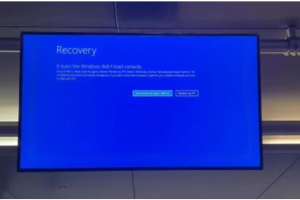March 18, 2024 – Samsung Electro-Mechanics unveiled today its new “WeatherProof” automotive camera module, featuring a waterproof coating and heating functionality, with plans to commence mass production within this year.

According to Samsung, this “WeatherProof” camera module boasts the “world’s most advanced waterproof coating,” significantly reducing the contact area between water droplets and the lens, allowing them to easily slide off.
The lifespan of such waterproof coatings can be compromised when exposed to sunlight and UV rays. However, Samsung claims that its proprietary material technology extends the lifespan of the coated lens by approximately six times compared to market alternatives, while also offering up to 1.5 times better protection against wear and tear caused by dust, parking scratches, and other factors.

During winter, cameras can malfunction due to fogging and frosting. To address this issue, Samsung has incorporated heating technology into the camera module.
As automakers increasingly install heated cameras to enhance the safety of their advanced driver assistance systems, Samsung Electro-Mechanics has developed a technology that maintains a constant temperature during the heating process while minimizing power consumption. This innovation allows the camera module to melt snow, frost, and other obstructions within just one minute.

Furthermore, leveraging its expertise in smartphone camera modules, Samsung Electro-Mechanics has introduced the world’s first automotive IRIS variable aperture camera module. The company boasts that its variable aperture functionality remains operational even in extreme temperatures ranging from -40 to +50 degrees Celsius.
Samsung Electro-Mechanics anticipates commencing mass production of its new “WeatherProof” automotive cameras later this year and aims to capture a 24% market share by 2025.
Meanwhile, LG Innotek announced earlier this year its development of a high-performance heated camera module for automotive applications, with plans to enter mass production in 2027.












